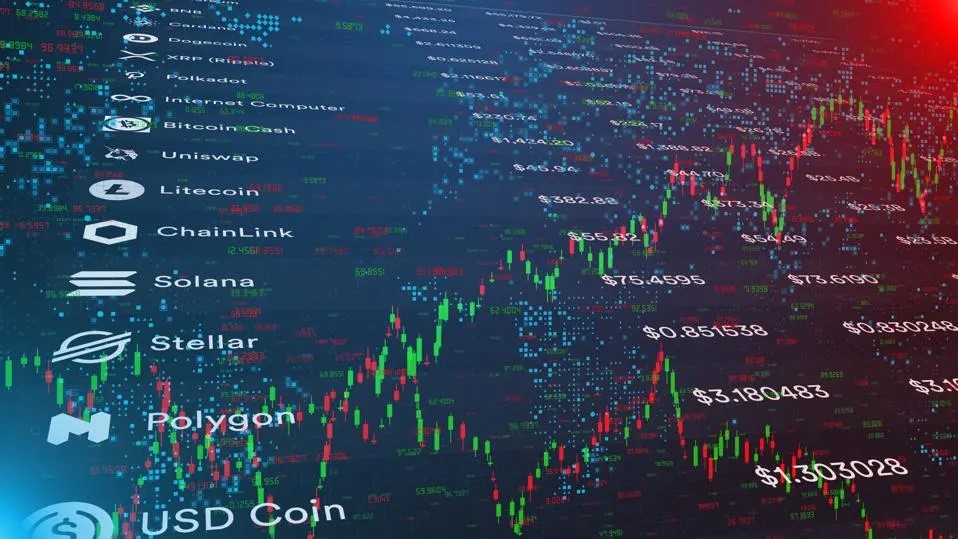Cardano vs Ethereum: Key Differences and Which Blockchain Leads in 2025

As the cryptocurrency landscape continues to evolve in 2025, two prominent smart contract platforms stand out in the competitive blockchain space: Ethereum and Cardano. Both platforms enable developers to create decentralized applications (dApps) and smart contracts, but their approaches, technical foundations, and market positions differ significantly.
## Platform Origins and Philosophy
**Ethereum**: Launched in 2015 by Vitalik Buterin and his team, Ethereum introduced the revolutionary concept of smart contracts to the blockchain world. It was designed as a "world computer" that could execute self-executing contracts with terms directly written into code, establishing the foundation for decentralized finance (DeFi) and the broader Web3 ecosystem.
**Cardano**: Founded in 2017 by Charles Hoskinson, one of Ethereum's co-founders, Cardano positioned itself as a "third-generation" blockchain platform. Unlike Ethereum's rapid development approach, Cardano adopted a research-driven methodology, emphasizing peer-reviewed academic research and formal verification methods in its development process.
## Technical Architecture and Consensus Mechanisms
**Ethereum's Evolution**: Ethereum initially operated on a Proof-of-Work (PoW) consensus mechanism similar to Bitcoin. However, it successfully transitioned to Proof-of-Stake (PoS) with Ethereum 2.0, significantly improving energy efficiency and scalability. The platform uses a single-layer architecture to manage both transactions and smart contracts.
**Cardano's Ouroboros**: Built from the ground up with a Proof-of-Stake consensus mechanism called Ouroboros, Cardano was designed to be energy-efficient from inception. The platform features a unique dual-layer architecture that separates the settlement layer (handling ADA transactions) from the computation layer (managing smart contracts and dApps).
## Performance and Transaction Costs
**Transaction Speed and Fees**: Current performance metrics show significant differences between the platforms:
- **Ethereum**: Processes approximately 20 transactions per second, with gas fees averaging $0.80 for simple swaps, though costs can spike to $20+ during network congestion
- **Cardano**: Handles around 250 transactions per second with consistently lower fees of approximately $0.30 (0.17 ADA), typically completing transactions within 30 seconds
## Market Position and Adoption
**Ethereum's Dominance**: As of 2025, Ethereum maintains its position as the second-largest cryptocurrency by market capitalization at approximately $327 billion. The platform processes over 1 million transactions daily and hosts the majority of DeFi protocols, NFT marketplaces, and established dApps.
**Cardano's Growth**: With a market cap of around $27 billion, Cardano represents about 10% of Ethereum's valuation. The platform processes approximately 100,000 daily transactions and continues to build its ecosystem, though at a more measured pace.
## Developer Ecosystem and Programming Languages
**Ethereum's Accessibility**: Ethereum uses Solidity, a programming language specifically designed for smart contract development. This has created a large developer community and extensive documentation, making it relatively accessible for new developers entering the blockchain space.
**Cardano's Academic Approach**: Cardano utilizes Haskell, a functional programming language favored in academic circles. While powerful and mathematically rigorous, Haskell presents a steeper learning curve, which has resulted in a smaller but highly skilled developer community of approximately 449 active developers.
## DeFi and Ecosystem Comparison
**Ethereum's DeFi Dominance**: Ethereum continues to lead in Total Value Locked (TVL), surpassing 25 million ETH in 2025—levels not seen since early 2022. The platform benefits from established protocols, institutional interest, and regulatory clarity, particularly with the approval of spot Ethereum ETFs.
**Cardano's Emerging Ecosystem**: While Cardano has made significant technical progress, it still struggles to attract meaningful stablecoin inflows and consistent protocol usage. The platform's emphasis on sustainability and formal verification appeals to certain use cases but hasn't yet translated to widespread DeFi adoption.
## Investment Considerations for 2025
**Ethereum's Stability**: With broader adoption, institutional backing, and established infrastructure, Ethereum offers more stability and liquidity. Recent ETF approvals have strengthened its position as a mainstream investment vehicle.
**Cardano's Growth Potential**: As a smaller-cap alternative, Cardano may offer higher growth potential if its technical advantages translate into increased adoption. However, this comes with higher volatility and execution risk.
## Regulatory and Institutional Adoption
Both platforms have gained institutional attention, with Cardano recently seeing interest from traditional investors and Grayscale filing for the first spot ADA ETF. However, Ethereum's first-mover advantage and established ecosystem continue to attract more institutional capital and regulatory clarity.
## Conclusion
While both platforms serve the smart contract ecosystem, they represent different philosophies and trade-offs. Ethereum prioritizes rapid innovation and ecosystem growth, accepting higher fees and complexity as necessary costs of leading the decentralized revolution. Cardano emphasizes sustainability, formal verification, and measured development, potentially offering better long-term technical foundations but facing adoption challenges in a fast-moving market.
For 2025, Ethereum's established position and growing institutional adoption suggest continued dominance, while Cardano's technical innovations and lower fees position it as a compelling alternative for specific use cases and long-term growth potential.
This article does not contain investment advice or recommendations. Every investment and trading move involves risk, and readers should conduct their own research when making a decision.

